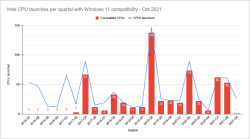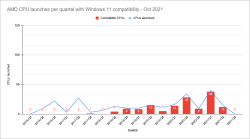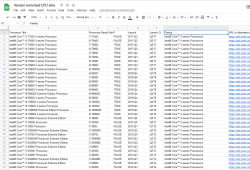OpenSSH 8.8 dropped SHA-1 support
Monday, October 25. 2021
OpenSSH is a funny beast. It keeps changing like no other SSH client does. Last time I bumped my head into format of private key. Before that when CBC-ciphers were removed.
Something similar happened again.
I was just working with a project and needed to make sure I had the latest code to work with:
$ git pull --rebase
Unable to negotiate with 40.74.28.9 port 22: no matching host key type found. Their offer: ssh-rsa
fatal: Could not read from remote repository.
Please make sure you have the correct access rights and the repository exists.
What? What? What!
It worked on Friday.
Getting a confirmation:
$ ssh -T git@ssh.dev.azure.com
Unable to negotiate with 40.74.28.1 port 22: no matching host key type found. Their offer: ssh-rsa
Yes, SSH broken. As this was the third time I seemed to bump into SSH weirdness, it hit me. I DID update Cygwin in the morning. Somebody else must have the same problem. And gain, confirmed: OpenSSH 8.7 and ssh-rsa host key. Going to https://www.openssh.com/releasenotes.html for version 8.8 release notes:
Potentially-incompatible changes ================================ This release disables RSA signatures using the SHA-1 hash algorithm by default. This change has been made as the SHA-1 hash algorithm is cryptographically broken, and it is possible to create chosen-prefix hash collisions for <USD$50K [1] For most users, this change should be invisible and there is no need to replace ssh-rsa keys. OpenSSH has supported RFC8332 RSA/SHA-256/512 signatures since release 7.2 and existing ssh-rsa keys will automatically use the stronger algorithm where possible.
With a suggestion to fix:
Host old-host
HostkeyAlgorithms +ssh-rsa
PubkeyAcceptedAlgorithms +ssh-rsa
Thank you. That worked for me!
I vividly remember back in 2019 trying to convince Azure tech support they had SHA-1 in Application Gateway server signature. That didn't go so well, no matter who Microsoft threw to the case, the poor person didn't understand TLS 1.2, server signature and why changing cipher wouldn't solve the issue. As my issue here is with Azure DevOps, it gives me an indication how Microsoft will be sleeping throught this security update too. Maybe I should create them a support ticket to chew on.
Why Windows 11 won't be a huge success
Tuesday, October 12. 2021
Lot of controversy on Microsoft's surprise release of Windows 11. I'm not talking about when they declared Windows 10 to be the "last Windows" and then releasing 11. Also changes in GUI have lots of discussion points. Neither the forced requirement of TPM2.0 which can be lowered to TPM1.2 with a registry change is not the deal-breaker. Is somebody whispering "Vista" back there? ![]()
What really makes all the dominoes fall is the lack of CPU-support.


In above graphs is visualization of three pieces of informatinon I scraped. First I took the list of Windows 11 supported CPUs from Windows Hardware Developer - Windows Processor Requirements. Then I went for https://ark.intel.com/ to collect Intel CPU data. Also did the same for https://www.amd.com/en/products/specifications/. As for some reason AMD releases only information from 2016 onwards, for visualization I cut the Intel to match the same.
Ultimate conclusion is, Microsoft won't support all Intel CPUs released after Q2 2017. With AMD stats are even worse, threshold is somewhere around Q2 2018 and not all CPUs are supported. Percentages for AMD are better, but also their volume is smaller.
If you want to do the same, I published my source code into https://github.com/HQJaTu/Windows-CPU-support-scraper. When run, it will produce a Google Spreadsheet like this:

... which can bevisualized further to produce above graphs.
One of my laptops is a Lenovo T570 from 2017. It ticks all the Windows 11 installer boxes, except CPU-support. Obviously, CPU-support situation is likely to change on progression of time, so I may need to keep running the scripts every quarter to see if there will be better support in the later releases of Windows 11.

